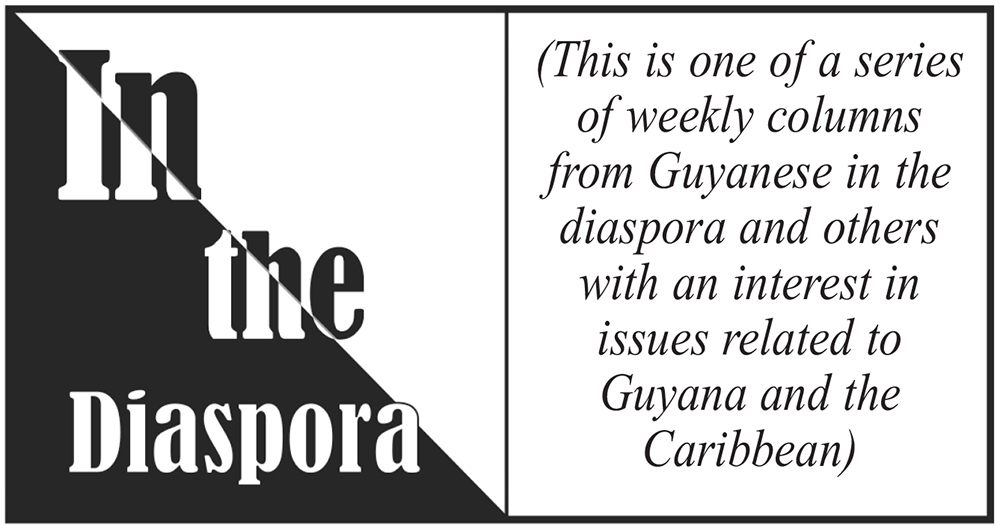By Stabroek News
Copyright stabroeknews

Ferlin F. Pedro is a frequent political commentator and human rights advocate with an academic background in philosophy, holding degrees from the University of London and the University of Edinburgh. He has a keen interest in civic education, ethics, and democracy.
The 2025 election in Guyana not only changed the distribution of seats in Parliament but also marked a significant shift in Guyanese politics. The emergence of the populist We Invest in Nationhood (WIN) party has fundamentally reconfigured the nation’s power dynamics. Their success was not merely the product of good campaign strategy, but it was in part fueled by a blend of charismatic philanthropy and a broad sentiment of voter dissatisfaction with the status quo. This reconfiguration has starkly illuminated the fragility of traditional politics in Guyana.
Every parliamentary democracy requires a sound opposition to ensure transparency and accountability of the governing party. The opposition serves not only as a counterweight to the ruling party but also as a safeguard for democratic norms, the protection of individual rights, and the government’s responsiveness to citizens’ needs. In doing so, the opposition helps prevent the possibility of authoritarianism and promotes the establishment of appropriate checks and balances.
Post 2025 elections, Guyana now has a serious problem: the opposition bench is incredibly weak.
There is now a precarious parliamentary dynamic defined by three contentious entities: the incumbent People’s Progressive Party/Civic (PPP/C) whose administrative competence has been marred by a series of allegations of systematic corruption, a battered APNU in disarray fighting to justify its relevance, and the new force for change, WIN, whose leader’s well-known history as a former affiliate of the PPP/C is under scrutiny for tax evasion and other legal problems which cast doubt on their integrity. This tripartite assembly sets the stage for an interesting future. The principal concern is the potential consolidation of state power, which could compromise the essential principles and values of Guyanese democracy. This analysis will examine how a weakened opposition may enable this concentration of power.
In the 2025 election, the A Partnership for National Unity (APNU) coalition suffered a major blow. For the first time in the party’s history, the People’s National Congress (PNC), its primary stakeholder, is no longer a major political force in Guyana. Having lost its leadership role as the opposition, this is the first instance in contemporary Guyanese politics where the dichotomy of the PPP/C and the PNC has been put on the back burner. Between 2020 and 2025, the APNU failed to undertake introspective reforms necessary to recover from the self-inflicted wound of supporting fraudulent results in the 2020 election. Instead of a mea culpa and a rebranding centered on reform, the party’s executive often doubled down on defiance, deflection, and a campaign of misinformation. This may have worked with its core base, but it demonstrably alienated the moderate, undecided, and younger voters who were essential to their 2015 victory.
From the beginning, the Alliance for Change (AFC), a party born in 2005 out of a genuine desire to break the corrosive ethno-political duopoly of the PPP/C and the PNC, championed a message of constitutional reform, good governance, and national unity. This message resonated powerfully, particularly with the business class, households of median income, intellectuals, and young people who were desperate for an alternative to race-based politics. The AFC positioned itself as the nation’s conscience, a third force that could hold the balance of power and force the two titans into a more cooperative and transparent mode of governance.
As a coalition member, however, the AFC failed to differentiate itself from the APNU, especially when it mattered the most back in 2020. By the time they finally broke with the APNU, it was too late to secure their relevance among the electorate. The AFC’s demise was both a disaster and a lesson for prospective third-force parties.
The 2025 election results were not a surprise but the predictable consequence of the major opposition parties losing their most valuable asset: the trust of the people. Voters, weary of perpetual conflict and seeking stability in an oil-rich era, turned away from the baggage of 2020 and towards a new entity, WIN, that, whatever its flaws, was not directly associated with that trauma. Additionally, according to official records, approximately 40% of the electorate did not turn out to vote, which may be partly attributed to voter apathy. When we look at the PPP/C’s campaign, it was one premised on results and policy with little to say about their political rival, the APNU+AFC. Ethnic rivalry, though still relevant, had far less weight in the last election. One reason for this is that young people, who make up a large block of the electorate, are less beholden to the historical allegiances that have defined Guyanese politics for generations. Their political identity is shaped more by economic aspirations, social media, and a desire for a functional modern state than by historical narratives. They have little patience for the bitter political angst that has kept the nation locked in a cycle of conflict. Many decided to vote for the “lesser of two evils” despite misgivings. And many voters were left without an option. Into this breach came WIN, a party formed in a matter of months by a man with no prior political experience and plenty of skeletons in the closet. It is now the main opposition in Parliament.
By focusing on tangible, material offerings, WIN presented a simple apolitical value proposition that cut through the noise of partisan bickering. Perhaps a good way of looking at the contending opposition views is this: where the APNU offered an uphill political struggle against an age-old foe, WIN offered a pathway to prosperity (though some aspirations put forward were lofty promises that only a messianic figure can deliver). What is for certain, though, is that this approach to politics is highly appealing to an electorate tired of the status quo battles that have failed to improve their ordinary lives. But will WIN live up to its promises? Do they have staying power without the heat of impending elections driving them forward? Will they be able to maintain their independence should the incumbent decide to entice them?
Over time, Guyana has witnessed the rise and fall of numerous political parties, especially around election cycles. A notable example is the AFC, which, once a promising third force to challenge the entrenched dominance of ethno-politics, eventually lost its distinct identity after entering a coalition with APNU, resulting in a diminished influence and relevance in subsequent elections. Similarly, parties such as The United Force (TUF) and the Working People’s Alliance (WPA) have seen their presence and message erode over the years due to their merger with the APNU. More recently, the initial founding of new parties, such as The Citizenship Initiative (TCI), the Liberty and Justice Party (LJP), and The New Movement (TNM), was predicated on a common sentiment: that joining the status quo means the preservation of it. They have either dissolved or thrown in their lot with the PPP/C despite vehement opposition to the party just five years ago.
Many of these parties have been motivated by short-term opportunities rather than sustained movements grounded in any particular philosophy or principles. Rather than fostering their own independent identities or working towards an alternative, more robust multi-party system, they have allowed larger parties to absorb their aspirations, thus reducing political plurality within the democratic landscape. When dominant parties absorb their competitors, voter choice and trust are diminished, and genuine political debate is stifled, weakening democratic accountability and ultimately undermining the health of democracy. It is, of course, a boon to the ruling party.
The PPP/C government demonstrates administrative capability through notable economic growth, largely driven by the expansion of the oil sector, as well as advancements in key infrastructure projects. However, these achievements are accompanied by ongoing allegations of corruption, insufficient transparency in government contracts, and perceived nepotism. This juxtaposition is significant: while tangible progress is evident, concerns persist regarding the integrity and processes behind these accomplishments.
The PPP/C’s long tenure in office prior to 2015 was marked by a tightening of its control over government institutions, a move towards centralizing its authority, a heightening of defensiveness towards criticism, and contentions surrounding media licensing, while employing tactics to manage the media and how it disseminated information. Media control is a critical aspect of any government that wants to monopolize the narrative—for information is power, and how that information is represented matters crucially to a government. The National Communications Network Inc., the Guyana National Newspapers Limited, and the Department for Public Information have been institutions used by the government (regardless of which party is in power) to present facts and news that represents them in a positive light. The job of the independent media is to scrutinize those facts. It is, quite frankly, a peculiar arrangement. However, the government’s grip on information control has been even more extensive than this. Many private media outlets have, in one way or another, an association or affiliation with high government officials. This adds more influence that the government can leverage, a fact that foreign diplomats have deemed a clear disadvantage for dissenting voices.
These concerns erode trust in public institutions and may reduce efforts towards accountability, thereby creating convenient circumstances where the centralisation of state authority is justified as progress, despite a weakening state or a lack of oversight mechanisms. When a ruling party is seen as the sole driver of economic prosperity, it can more easily dismiss criticisms of its governance as attempts to derail national development, thereby marginalizing dissent and reducing opposing views to mere negative opinions that should be ignored or litigated. So, where does this leave us?
The PPP/C is a powerful player, and it will continue to enjoy this stance for much longer, while the opposition bench is critically weak. Added to this, there is a new force with a credibility problem that has yet to stand the test of time. Should WIN merge with the incumbent, it would be detrimental to democracy. These considerations are reasons why the risk of a consolidation of state power is so pronounced. Without a strong, unified, and credible opposition to challenge its policies, question its appointments, and scrutinize its use of state funds, the ruling party faces fewer constraints on its power. This can create a trajectory away from democratic integrity and toward a system where the lines between the state and the ruling party begin to blur—a position Guyana has been in before.
In conclusion, the impact of a weakened opposition remains to be seen. However, this reality will offer the incumbent new ways of leveraging its advantage for political dominance. With the APNU a lesser threat on the opposition bench, newcomer WIN looks to prove its credibility to the Guyanese populace. Though the challenges ahead seem insurmountable, it is not solely the responsibility of elected officials to safeguard democracy, it also lies with the people themselves. In the words of Walter Rodney, “the people must be their own liberators.” Citizens must remain vigilant, informed, and actively engaged in the political process. This means questioning policies, demanding transparency, engaging in public discourse, and holding leaders accountable for their actions through protests and other viable means. For when there is an overly confident and unchecked ruling party, symptoms of control begin to manifest. The safeguards of democracy—i.e., transparency, accountability, and a robust opposition—are undermined when one party’s strength is magnified by the systemic weaknesses of the state and that of its opposition.



